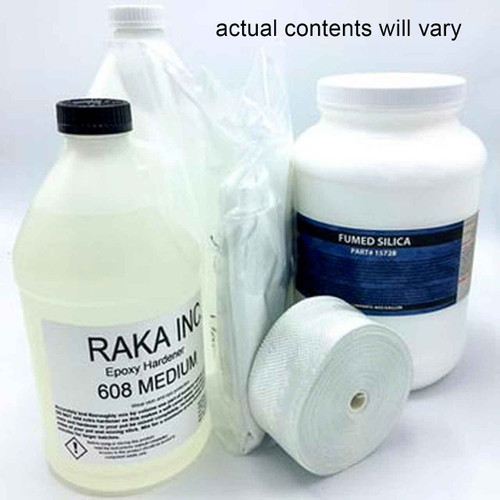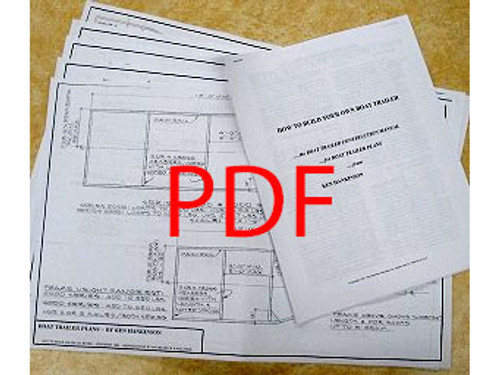An 8' sail/row plywood pram
This V-bottom dinghy is akin to the renown Sabot, using the identical rig and rudder, and fitted with a daggerboard for the Sail Version. It's also similar in form and dimensions to the popular El Toro class. SABOTINA makes a great ship-to-shore dinghy with or without the sail rig. You can build either our STANDARD VERSION or our STITCH-&-GLUE VERSION.
The STANDARD VERSION is built upside down over the two transoms (ends) and 3 temporary formers that don’t stay in the boat. Longitudinal wood backing members back up the hull edges and junctions, and receive the planking fastenings. Many people prefer this type of construction since it's a good introduction to typical wood boatbuilding operations involved on bigger boats, hones one's skills, and therefore provides great training. Yet our basic construction as perfected by Ken Hankinson in actual boatbuilding classroom situations is much simplified over past types. And our available FULL SIZE PATTERNS option for the hull-forming members speed the process for the inexperienced builder.
But for even faster, simpler construction, others prefer our "STITCH-&-GLUE" version. This includes FULL SIZE PATTERNS for ALL panel and structural members of the boat, and results in the lightest weight boat. Hull fastenings are virtually eliminated, as are the backing members at panel joints. Seats are integral with the structure, and form closed-in flotation compartments. Whichever SABOTINA you pick, you can save hundreds of $$$ over the cost of ready-made dinghies. They're both fun & easy, and ideal starter boats.
What Makes a Good Pram
Prams should tow, row, and sail well. Yet many don’t, even costly production boats and some from competitors. Hull shape is the key. For directional control when rowing, towing, or sailing, a v-bottom chined hull is best. Flat-bottomed prams can’t do all three functions well, and those of round or multi-chined form are less stable and harder to build.
For least drag and best speed, prams need enough profile "rocker" so ends can lift. There must be just-the-right fullness in these ends (especially the bow) so it won't push up a wall of water underway.
Buoyancy must be sufficient for stability and load carrying. Yet too many prams have ends too broad or deep - you can tell them by their bow waves piling up ahead while turbulence gathers aft due to drag from a too-wide stern. This drag makes headway and directional control difficult under sail or oar, and such boats may swamp when towed.
SABOTINA meets all these demands well. It's based on the most proven dinghy hull of all time (same as Sabots, El Toro's, and others), with thousands in use world wide. We've refined the details so building is fast and easy, even for beginners.
About Sabotina's Mast and Boom
The wood mast we detail is superior and costs next to nothing compared to one in aluminum. It's stiffer, stronger, and floats too! Best of all, it's easy to make and with no need to pay any freight to get it. If a round dowel is not available, start with a 2" square section length of wood (or Glue one up from thinner laminates - Douglas-fir or Sitka spruce work well). Then make it octagon-shaped (which is round enough) by setting a table saw blade at 45-degrees, and cutting off the four corners to form 8 equal facets. That's all there is to it! Our sail simply slips over it. The boom is a 1" x 2" stick of strong wood such as fir or oak. No rocket science involved!
Andy Suhrer of OREGON sent us these comments about his Stitch & Glue SABOTINA he built from our plans and which he uses as a tender for his larger boat:
"The whole project - painting and all - took 60 hours and $400 of materials. The pram had a tremendous amount of use this summer...and has proven to be remarkably tough... I'm continually impressed with the results. Without a doubt it is the easiest and fastest to build boat I've ever come across (I've built several "stitch-&-glue" [and] "instant" boats previously)... Can't praise it enough... Thanks for the great service."
- Length overall:
- 7'-10"
- Beam:
- 3'-11"
- Weight (Standard):
- 65-70 lbs.
- Weight (Stitch-&-Glue):
- 50-60 lbs.
- Sail area (Max):
- 38 sq. ft.
- Hull type:
- Vee bottom pram for Stitch & Glue plywood or standard plywood construction.
- Power:
- Outboard motor to 3 HP.


















